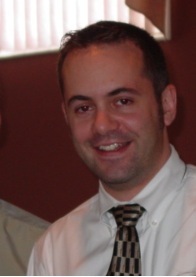by
Sean Ruck, Contributing Editor | March 01, 2014
From the March 2014 issue of HealthCare Business News magazine
I've had discussions with people who were adamant in proclaiming that our health care system is the best in the world. A relative once insisted that the U.S. is the best of everything in the world. I still take exception with the statement.
Unfortunately, the U.S. doesn't have the best health system in the world. I'm basing my claim on evidence-based outcomes. For industrialized countries, we're at the bottom of the list when it comes to a host of health related measurements. What I do think is that the U.S. has the potential to be the best health system in the world. We have all the parts to be successful - we have some of the best technology, talented and experienced professionals, and we throw a lot of money at health care - more than all the countries ranked higher than us.
So the question is, what are we doing wrong? The answer would take far more space than what's set aside for this letter and honestly, far more space than what's set aside for the entire issue. So instead, I'd like to focus on a few stories in this month's issue that help to illustrate at least some of the shortcomings and some of the bright spots.
For starters, the article on federally qualified health centers (p. 30) made me wonder if the efforts to expand Medicaid also call for an effort to expand specialty care to covered individuals. FQHCs, which care for a large portion of Medicaid patients, are synonymous with primary care but many are including specialty services.
As for training and experience, our feature on the evolving role of nurse practitioners (p. 36) delves into that very hot topic. The article's focus centers around the debate over whether NPs should be allowed to practice without physician oversight. Nurses argue that their training qualifies them to attend to most patient needs, while some physicians and groups representing them feel there are pitfalls to both finances and patient care when NPs practice without physician oversight.
Finally, on the technology side, our industry sector report showcasing the latest in the OR (p. 44) - from Google's entry into the area, to developments with surgical robots - helps to highlight some of the technology that will help usher the OR into a new era.
Before I wrap-up this month's letter, I want to reiterate the main point. Health care's problems are numerous, so foisting the blame on any one program, market sector or political party is absolutely off base. The situation we're in wasn't caused by the insurance providers, health care providers, lawyers, politicians or patients on their own. It was caused by all and more working together (or working against each other). It seems the logical way to solve the problem is by working together to find proper solutions. Whether that'll happen in our lifetime remains to be seen, but if it is going to happen, everyone had better work fast. Life expectancy in the U.S. isn't great when compared to many other countries . . .
Back to HCB News
